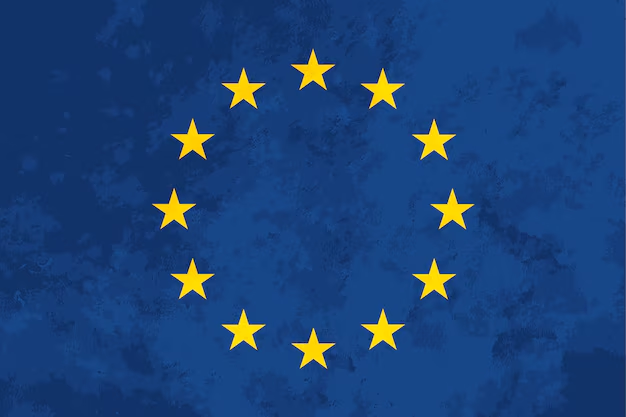
The European Union (EU) became the Indian Ocean Rim Association’s (IORA) 12th Dialogue Partner on January 30, 2024, marking a significant milestone in regional collaboration. IORA Secretary General Salman Al Farisi presented the acceptance letter to EU Delegation’s ambassador to Mauritius and Seychelles, Oskar Benedikt, during a ceremony conducted at the IORA Secretariat in Ebene, Mauritius. This historic event highlights the EU’s dedication to promoting cooperation, collaboration and dialogue throughout the Indian Ocean region.
The EU’s entry into IORA amplifies its presence in the Indo-Pacific, a region increasingly regarded as the fulcrum of global economic and strategic power. With a combined GDP of more than $11 trillion USD and a population of over 2.7 billion, the Indian Ocean region is among the most economically vibrant in the world. The EU hopes to increase its influence and support the preservation of peace, stability, and prosperity in the area by collaborating more closely with IORA member nations. For decades, the EU has been a significant contributor to the Indian Ocean Region (IOR), serving as a development partner of the Indian Ocean Commission (IOC) and conducting security operations through Operation Atalanta since 2008. This continued involvement demonstrates the EU’s dedication to fostering development, stability, and peace in the area.
The Indian Ocean has a great deal of potential and is strategically significant because of its essential sea routes, major ports, and substantial portion of the world’s oil production. But it also faces a host of security challenges, such as unlawful fishing, terrorism, and piracy. The EU’s participation in IORA as a Dialogue Partner provides an opportunity to enhance maritime safety and security cooperation, aligning with IORA’s priorities and focus areas. The EU’s participation as a Dialogue Partner enhances IORA’s current initiatives to fight maritime crime and boost regional cooperation. Adopted at the 22nd Council of Ministers meeting in Dhaka, Bangladesh, IORA’s Outlook on the Indo-Pacific emphasizes the organization’s readiness to assist with projects undertaken by other regional organisation in the Indo-Pacific area.
Entry into IORA is in line with the goals of the EU’s maritime strategy, which include establishing a rules-based maritime order, improving maritime security, and encouraging sustainable blue growth. The goal of the EU’s Integrated Maritime Policy is to advance international collaboration, sustainable development, and maritime security through a coordinated approach to marine concerns. The EU may use its maritime experience to address shared issues and advance maritime cooperation in areas including sustainable fisheries management, marine biodiversity conservation, and maritime governance by interacting with IORA member states.
Politically, the EU’s involvement in IORA conversation platforms presents a chance for improved diplomatic communication and discussion of important regional concerns. With 22 member states representing diverse political systems and economic interests, IORA provides a valuable forum for addressing common challenges and promoting cooperation. By fostering closer ties with IORA member states, the EU can facilitate constructive dialogue on topics ranging from maritime security and trade to environmental sustainability and disaster management.
In terms of security, the EU’s entry into IORA holds the potential to strengthen maritime security cooperation in the Indian Ocean region. More than half of the world’s container traffic and a third of its bulk freight flow via some of the busiest sea channels in the Indian Ocean. For international trade and economic growth, it is essential to maintain the security and stability of these key maritime lanes. The EU can help protect important sea lanes and fight transnational threats like piracy, terrorism, and unlawful fishing by working with IORA member states on security measures. In an effort to counter new security threats, the EU should collaborate closely with IORA member states to strengthen maritime security cooperation. This cooperation should include collaborative patrols, information sharing, and capacity-building initiatives.
Economically, the EU’s participation in IORA dialogue mechanisms opens up new avenues for trade, investment, and economic cooperation. Natural resource abundance and substantial trade and investment potential characterize the Indian Ocean region. With nearly €460 billion in commerce between the EU and IORA member states in 2023, the EU is by far the region’s biggest trading partner. By promoting trade liberalization, infrastructure development, and connectivity initiatives, the EU can help unlock the region’s vast potential and create mutually beneficial opportunities for businesses and communities. To support trade and economic growth, the EU should give infrastructure development in the Indian Ocean region top priority, especially in areas like ports, transport networks, and digital connection.
The EU should promote sustainable development and environmental conservation in the Indian Ocean region, including initiatives to address climate change, marine pollution, and overfishing, to ensure the long-term viability of the region’s resources and ecosystems. However, challenges and criticisms must be acknowledged. The EU’s participation in IORA may be seen by some as excessive meddling in the internal affairs of Indian Ocean nations or as neocolonialism.There is reason to be concerned about the EU’s past and present fishing operations in the Indian Ocean, which could result in unsustainable methods and overexploitation of marine resources.In addition, given possible disparities in goals and interests, concerns about the EU’s capacity to successfully handle the many and complicated issues the region faces may surface.
By acknowledging these challenges and criticisms, we can foster a more nuanced understanding of the implications of the EU’s involvement in IORA. The EU is well-positioned to address global issues like climate change and marine pollution, advance sustainable development, and improve maritime safety and security as it deepens its involvement in IORA. This action confirms the EU’s dedication to upholding a rules-based international order and emphasizes the significance of multilateral cooperation in tackling common challenges in the Indo-Pacific region. Moreover, the collaboration between the EU and IORA represents a significant stride towards fostering regional security, stability, and prosperity.
By The European Institute for International Relations














